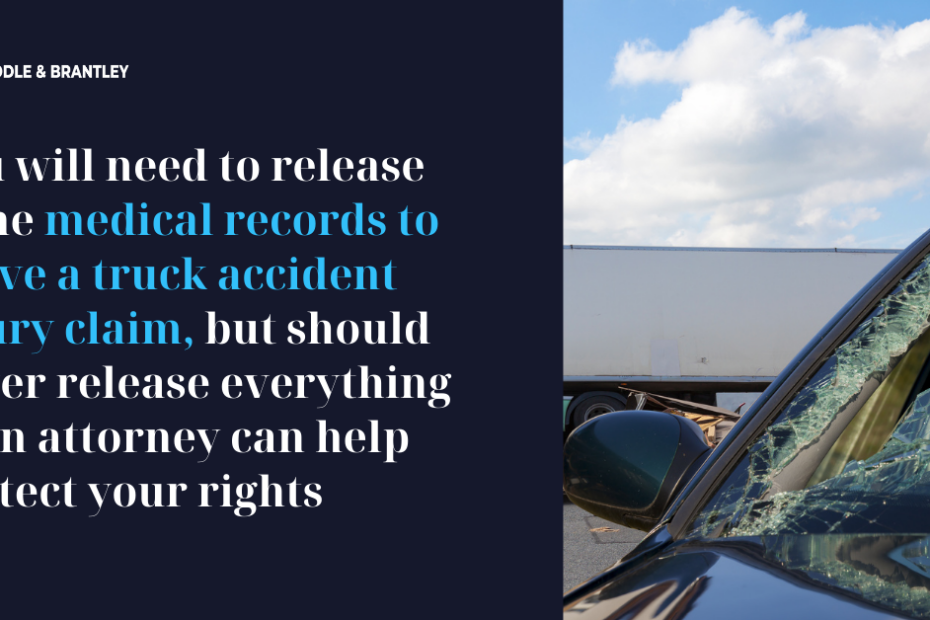Yes, if you agree with the insurance company’s assessment and value of your car as a total loss, you should release it to the insurance company. By doing so, you can proceed with the claims process and potentially receive a settlement for your car.
Understanding Total Loss
When you find yourself in a situation where your car has been severely damaged in an accident, the insurance company may deem it as a total loss. But what exactly does this mean and what are the reasons why a car may be considered a total loss? Let’s explore.
What Does It Mean For A Car To Be A Total Loss?
When a car is declared a total loss, it means that the cost to repair the damages exceeds the actual value of the vehicle itself. In simpler terms, the repairs needed would be more expensive than what the car is worth. This can happen due to various factors such as the extent of the damage, the age of the car, and the market value of similar vehicles.
Reasons Why A Car May Be Deemed A Total Loss
There are several reasons why a car may be considered a total loss by the insurance company:
- Severe collision: If your car has been involved in a major accident where the damage is extensive and beyond repair, it is likely to be considered a total loss.
- Flood or fire damage: In the unfortunate event of your car being damaged by flooding or fire, the insurance company may determine it as a total loss due to the significant damage caused.
- Theft or vandalism: If your car has been stolen and later recovered with substantial damage or was vandalized to an extent that it would cost more to repair than its actual value, it may be classified as a total loss.
- Hail damage: In regions prone to severe hailstorms, if your car has sustained extensive hail damage, the repair costs may exceed the car’s worth, leading to it being deemed a total loss.
It’s important to understand that the decision to designate a car as a total loss is made by the insurance company based on their assessment, which involves considering various factors and calculations.
If your car is determined to be a total loss, you may have the option to release it to the insurance company. However, it’s crucial to weigh your options and consider factors such as sentimental value, potential salvage value, and any personal attachments you may have towards the vehicle before making a decision.
In conclusion, understanding what it means for a car to be a total loss can provide clarity in making decisions regarding whether to release your car to the insurance company. By being aware of the reasons why a car may be declared a total loss, you can navigate through the claims process more effectively.

Credit: www.bressmanlaw.com
Assessing The Value Of Your Car
When deciding whether to release your car to the insurance company, it is important to assess the value of your vehicle and consider factors such as the insurance company’s assessment and your own agreement with it.
How Insurance Companies Determine The Value Of A Totaled Car
When it comes to assessing the value of your car, insurance companies use a specific process to determine its worth. Understanding how they arrive at this value can help you make an informed decision about whether to release your car to the insurance company. Here are the factors that insurance companies consider when determining the value of a totaled car: 1. Age and Mileage: The age and mileage of your car play a significant role in determining its value. Typically, older cars and those with high mileage will have a lower value than newer cars with less mileage. Insurance companies use this information to assess the depreciation of your vehicle. 2. Condition: The overall condition of your car is also taken into account. Any pre-existing damage, wear and tear, or maintenance issues can affect its value. Insurance adjusters will evaluate the condition of your car to determine its worth in the current market. 3. Market Value: Insurance companies use market value as a reference point when assessing the value of your car. They consider the current market conditions, such as demand and supply for similar vehicles, recent sales data, and the prices of comparable cars in your area. 4. Vehicle History: The history of your car, including any past accidents or repairs, can impact its value. Insurance companies will take into consideration whether your car has been involved in previous accidents. This information helps them determine the pre-accident value, which is used as a starting point for calculating the total loss value. 5. Optional Equipment and Upgrades: Extra features, optional equipment, or aftermarket modifications can add value to your car. Insurance companies will consider these additions when assessing the value of your vehicle. It is essential to provide documentation or receipts for any significant upgrades or modifications to obtain a fair value for your car. 6. Depreciation: The depreciation rate of your car is a crucial component in assessing its value. Insurance companies use industry-standard formulas to determine the rate of depreciation for each year of your car’s life. The longer you’ve owned your car, the higher the depreciation, which can impact the total loss value.Factors That Can Affect The Value Of Your Car
Several factors can influence the value of your car, making it essential to understand how these factors can impact the insurance company’s assessment. Here are some factors to consider: 1. Market Fluctuations: The market value of vehicles can change over time due to various factors such as economic conditions, gas prices, and trends in the automotive industry. Fluctuations in the market can affect the value of your car. 2. Vehicle Demand: The demand for specific makes and models can impact the value of your car. If your car is in high demand, its value may be higher than a similar model that is less sought after. Similarly, if there is low demand for your car, its value may be lower. 3. Condition and Maintenance: Maintaining your car in good condition can help retain its value. Regular servicing, repairs, and proper upkeep can positively impact the value of your vehicle. On the other hand, neglecting maintenance or having significant damage can decrease its worth. 4. Location: The location where you live can influence the value of your car. Factors such as local taxes, fees, and regulations, as well as regional market conditions, can affect the value of your vehicle. The same car may have different values in different areas. 5. Vehicle Desirability: Certain cars are more desirable than others due to factors such as brand reputation, reliability, fuel efficiency, safety features, and popularity. Desirable vehicles can have a higher value, while less desirable vehicles may have a lower value. It’s important to remember that every insurance company may have its own valuation process and take these factors into consideration differently. Understanding the factors that can affect the value of your car will help you have a better idea of what to expect when working with your insurance company to assess the value of your totaled car.Considering Your Options
Considering your options when it comes to releasing your car to the insurance company can save you money if you’re not driving it. However, before making a decision, it’s important to understand that certain coverages can still protect your vehicle even when it’s off the road.
What To Do If Your Car Is Declared A Total Loss
If your car has been declared a total loss by your insurance company after an accident, it’s important to carefully consider your options. While releasing your car to the insurance company may seem like the easiest choice, there are other alternatives to explore. Understanding these options can help you make an informed decision about what to do with your car.Understanding The Process Of Releasing Your Car To The Insurance Company
When you release your car to the insurance company, you essentially surrender ownership of the vehicle in exchange for a settlement payment. The insurance company will then take possession of the car and typically sell it as salvage. This process can provide you with some financial compensation for your totaled vehicle, but it’s important to understand the implications. Releasing your car to the insurance company means that you will no longer have access to it. If you have an emotional attachment to your car or believe that you can potentially salvage and repair it, this may not be the best option for you. However, if the cost of repairs exceeds the value of your car or you simply don’t have the means or desire to fix it, releasing it to the insurance company can provide closure and financial support.Potential Alternatives To Releasing Your Car
If you’re not sure about releasing your car to the insurance company, there are a few potential alternatives to consider. Here are a few options to explore: 1. Selling your car privately: Depending on the extent of the damage, you may be able to sell your totaled car privately. There are individuals or businesses that specialize in buying and repairing salvage vehicles, so you might be able to get a better price than what the insurance company offers. 2. Retaining ownership for salvage title: Another option is to retain ownership of your car and apply for a salvage title. This allows you to keep the car and potentially repair it to drive again. Keep in mind that a salvage title may affect the future value and insurability of your car. 3. Donating your car: If your car is no longer drivable or valuable, you can consider donating it to a charitable organization. This allows you to make a positive impact while also potentially receiving a tax deduction. Ultimately, the decision of whether to release your car to the insurance company or explore alternatives depends on your individual circumstances and preferences. Consider the financial implications, sentimental value, and the feasibility of repairing the vehicle before making a choice.Understanding The Implications
When it comes to dealing with car insurance claims, one important decision you may face is whether or not to release your car to the insurance company. This decision can have several implications that you need to understand before making a final choice. In this article, we will explore two key aspects of releasing your car to the insurance company: the impact on your insurance premiums and the legal implications of signing a car insurance release.
The Impact Of Releasing Your Car On Your Insurance Premiums
Releasing your car to the insurance company can have a significant impact on your insurance premiums. When you file a claim and release your car, it is typically deemed a total loss, which means the cost of repairing the car exceeds its market value. In such cases, the insurance company will provide you with a payout based on the value of your car at the time of the accident.
This payout may seem like a relief, especially if your car was severely damaged. However, it’s essential to consider the long-term consequences. When you release your car, it is marked as a total loss on your insurance record. This can result in higher insurance premiums when you purchase a new car or insure another vehicle in the future.
Making An Informed Decision
When it comes to deciding whether to release your car to the insurance company, it’s crucial to make an informed decision. This means considering various factors, seeking professional advice, understanding your rights, and exploring alternative solutions. By carefully weighing these factors, you can ensure that you make the best decision for your situation.
Important Factors To Consider Before Deciding To Release Your Car
Before releasing your car to the insurance company, it’s vital to consider several important factors. These factors can help you assess the overall value and potential costs associated with the release. Here are some factors to keep in mind:
- The extent of damage to your car: Evaluate the extent of damage to your car and determine if it is repairable or if it would be considered a total loss.
- The value of your car: Consider the market value of your car, taking into account factors such as age, mileage, and overall condition. This will help you determine if repairing the car is worth the expense.
- Your financial situation: Assess your financial situation and determine if you have the means to pay for repairs or if you would benefit from the insurance payout.
- Potential future repairs: Consider any potential future repairs that may be required and estimate their costs. This will help you determine if keeping the car is a financially sound decision in the long run.
Seeking Professional Advice And Understanding Your Rights
Before making a decision, it is always advisable to seek professional advice from an expert. Consult with a trusted mechanic or an insurance professional who can assess the damage to your car and provide you with an informed opinion. Additionally, it’s important to understand your rights as a policyholder. Familiarize yourself with your insurance policy and the terms and conditions surrounding car releases. This knowledge will empower you to make a decision that aligns with your rights and best interests.
Exploring Alternative Solutions And Negotiating With Your Insurance Company
Releasing your car to the insurance company is not the only solution. Before making a final decision, explore alternative solutions that may be available to you. For example, you can negotiate with your insurance company to obtain a higher payout or explore the possibility of having the car repaired at a preferred mechanic. Open a dialogue with your insurance representative to discuss all available options and ensure you understand the implications of each choice.
Ultimately, the decision to release your car to the insurance company is a personal one. By considering important factors, seeking professional advice, understanding your rights, and exploring alternative solutions, you can make an informed decision that is best suited to your unique situation.
:max_bytes(150000):strip_icc()/car-repair-following-insurance-claim-accident-527113_color-e5cd60eaed274db5b5e65c860183cd64.png)
Credit: www.thebalancemoney.com

Credit: www.tdi.texas.gov
Frequently Asked Questions On Should I Release My Car To The Insurance Company
Should I Cancel Car Insurance If Not Driving?
Canceling car insurance if not driving may save you money temporarily, but keep in mind that certain coverages, like comprehensive coverage, can still protect your vehicle even when it’s not being used. Consider suspending insurance only if you’re confident you won’t encounter any potential risks.
Do I Need To Notify The Dmv If My Car Is Totaled Texas?
No, you do not need to notify the DMV if your car is totaled in Texas. If you surrender the vehicle, cancel the registration and title with your local DMV. If you retain the vehicle, apply for a salvage title.
A salvage title indicates the vehicle has been deemed a total loss but can still be repaired and driven.
Why Does My Insurance Go Up When I Remove A Car?
When you remove a car from your insurance coverage, the premium on your remaining vehicle may go up. This is because you lose the multi-car discount, and other factors like uninsured/underinsured coverage and taxes can also affect the rate.
Why Does An Insurance Company Want To Know Who Will Be Driving The Car?
An insurance company wants to know who will be driving the car to assess the risk of potential damages or injuries. It can also impact the rates if other drivers in your household have a poor driving history.
Conclusion
Overall, the decision of whether to release your car to the insurance company is a personal one. It is important to weigh the factors such as the extent of damage, cost of repairs, and the value of your car. While releasing your car may result in a settlement, it is essential to carefully consider your options before signing any agreements.
Remember, consulting with an attorney or seeking professional advice can help you make an informed decision.
- How to Diagnose Bad Strut Mounts: Expert Tips for Quick Fixes - May 16, 2024
- How to Bypass Blower Motor Relay: 7 Expert Techniques - May 16, 2024
- How to Easily Check Ecu Ground: Essential Steps for Optimal Performance - May 16, 2024


